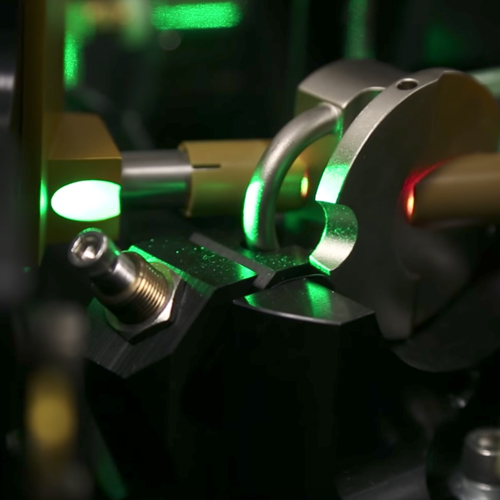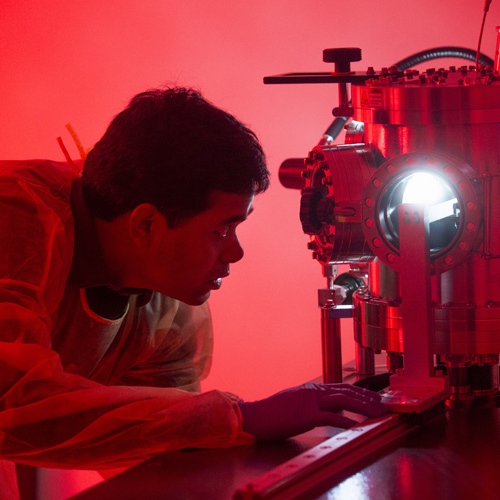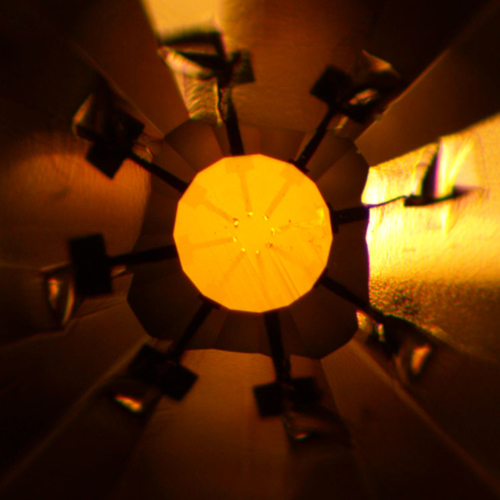Undergraduate Program
Students who major in physics go on to successful careers in a variety of fields that impact both big research problems and the technology-based global economy. The UAB Department of Physics offers a rigorous but flexible undergraduate program. We emphasize both depth and breadth in order to meet the demands of tomorrow’s interdisciplinary research and education.
We are now witnessing a convergence of the physical, data, biological, human and mathematical traditional sciences. More and more, repetitive work is being taken on by computers that use Artificial Intelligence and Data Science techniques, such as Machine Learning. What is left for humans? Anything that requires creativity and critical thinking. Research has shown that, when combined with more specialized training, five skills are of the greatest value to today’s employers. These are what you could call "21st century skills":
- problem-solving,
- critical and creative thinking,
- collaboration,
- communication and
- ethical reasoning and mindset.
Our UAB program is especially designed to develop these complex skills together with the more technical skills rooted in Physics. Such combination makes workers most competitive for high-demand, high-paying jobs in the science, technology, engineering, mathematics and medicine (STEMM) fields.
Building a Signature Resume and Skillset
In order for our students to develop the skills that employers desire and Grand Challenge interdisciplinary research problems demand, the UAB Department of Physics offers five different undergraduate tracks whose objective is to build a competitive student skill-set and curriculum vitae. Our tracks are designed to help students achieve their career goals not only in traditional physics, but also in closely-related data science, engineering, teaching, business, and medical fields.
Undergraduate physics students may take a specific cluster of courses that align with one of our tracks—General Physics, Advanced Physics, Applied Physics, Computational Physics, or Biophysics. This more personalized and targeted approach allows our students to tailor their degree to their own interests and develop a specialization within the field, giving them a competitive edge over their peers after graduation.
All of our areas of focus place an emphasis on excellence and innovation. We train our students to use critical thinking and systematic analysis to understand complex theories and solve today's scientific problems. Our students develop complex skills both in the classroom and inside the experimental and computational lab. Our students are well-connected to industry and well-prepared to serve a fast-changing and technology-driven society.
Experiential Learning and Faculty Mentoring
While theory is essential to a successful career in physics, we believe that conducting top-level hands-on research early in your undergraduate career is a vital part of a good physics education. Experiential learning in the research lab gives students a competitive advantage over their peers.
Our students are given the opportunity to work in faculty research labs, publish peer-reviewed papers on their research, and present their findings at national and regional conferences. This unique opportunity has allowed our students to compete on the highest level for entrance into the country’s top graduate programs and medical schools, and land prestigious jobs at world-renowned companies, national labs, and agencies. You don’t graduate our program by simply watching a professor talk. You must be a problem-solver, work effectively in teams, have STEM content knowledge, must be a self-directed learner and must make ethical decisions.
With our Faculty Mentoring System, we focus our students on developing a unique skill-set that will distinguish them in the marketplace. All physics majors meet regularly with their Faculty Mentor, who specializes in the Physics Track and career path that best meets the student’s individual interests. This Physics faculty mentor will guide the student to design the most effective course sequence that best fits his/her individual interests and aspirations. In addition, the mentor will connect the student with physics research, provide academic support and career guidance, and see the student through graduation. This aspect of our undergraduate program goes beyond typical academic advising to give all of our students with diverse backgrounds and preparation both the knowledge and the opportunities they need to succeed while in school and after they graduate.


